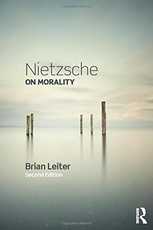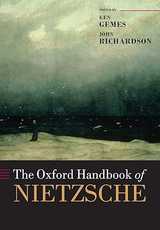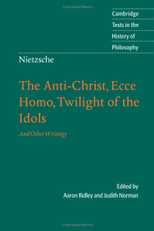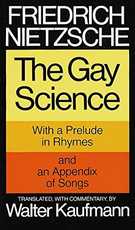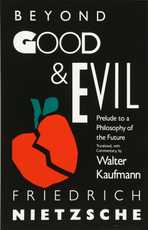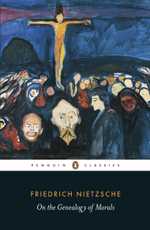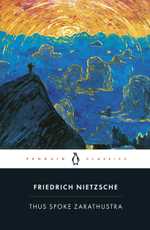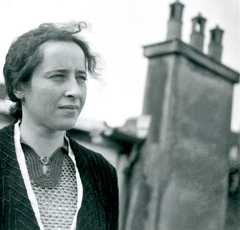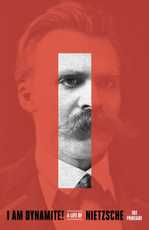

Friedrich Nietzsche The Best 9 Books to Read
Friedrich Nietzsche (1844-1900) was a 19th-century German philosopher who, though hardly read during his own (sane) lifetime, has become a dominant intellectual force in today’s popular culture.
Perhaps best known for his proclamation that God is dead, along with his critique of conventional morality and religion, Nietzsche is remembered for his attempt to establish what he called a ‘revaluation of all values’, and is celebrated for his brilliant, provocative aphorisms and idea-packed prose (which includes, for instance, his vision of the Übermensch, his distinction between the Apollonian and Dionysian, his presentation of the eternal recurrence, amor fati, and all of the 97 clever Nietzsche passages and quotations we’ve collated here).
Accordingly, Nietzsche’s reputation in the English-speaking world is now arguably the highest it’s ever been, and his place in philosophy’s canon looks assured.
However, it wasn’t always this way. After suffering a mental breakdown in 1889 from which he never recovered, Nietzsche (and his works) came under the care of his sister, Elisabeth Förster-Nietzsche, who was a bigoted anti-Semite.
Elisabeth warped Nietzsche’s unpublished notebooks and unfinished works (now collected in The Will to Power) into a bloodthirsty call to arms for nationalist Germany, which aligned to the blueprint for Hitler’s ‘superior’ Aryan race.
For a long time, therefore, Nietzsche’s ideas were synonymous with those of Nazism.
Thankfully, the truth of Elisabeth’s tampering emerged — as did letters and earlier works evidencing Nietzsche’s fierce opposition to nationalism and antisemitism.
Following the Nazi defeat in World War II, efforts were made to sanitize Nietzsche’s name, not least by the philosopher, translator, and poet Walter Kaufmann.
Kaufmann recognized that Nietzsche was majorly misunderstood in the English-speaking world, and set out on a long-term campaign to not only provide new English translations of all of Nietzsche’s works, but also guide readers in better understanding the profundity of his ideas.
(For more on the key events of Nietzsche’s life and legacy, including his tragic descent into insanity, see our overview of Nietzsche’s life, insanity, and legacy, which places his philosophy in the context of his life and illness, ultimately suggesting that Nietzsche’s task in both his personal life and his wider philosophy were one and the same: to find meaning in suffering, to make recovery more predominant than resentment, and to establish a solution to the problem of nihilism.)
In one concise email each Sunday, I break down a famous idea from philosophy. You get the distillation straight to your inbox:
💭 One short philosophical email each Sunday. Unsubscribe any time.
Even enjoying a resurgence in popularity, however, Nietzsche’s philosophy remains commonly misunderstood, misread, and misappropriated by those from all over the political and philosophical spectrum, who wish to elevate their particular cause with the power of his rhetoric.
With a range of thinking so widespread, and a style of writing so stunningly and wickedly provocative, it is perhaps no surprise that Nietzsche’s iconoclastic, hammering utterances — designed to jolt people out of presuppositions — can be so grossly taken out of context.
Here is a thinker who not only changes his mind on key topics throughout his active philosophical period, but who at times suggests he doesn’t want to be understood, not to be purposefully oblique, but because he thinks his readers are not yet ready for what he has to say.
The difficulties of reading Nietzsche
Getting into Nietzsche, then — i.e. really understanding and appreciating his philosophy, rather than just a few of his most famous quotations — can be somewhat of a challenge.
For, far from helping his readers by clearly laying out his ideas in rigid, structured form, Nietzsche prefers to challenge us by scattering his great ideas across his works — often offering only hints and winks about what he truly thinks, and occasionally contradicting himself or reevaluating earlier ideas.
Nietzsche also primarily adopts an aphoristic writing style — presenting us with a numbered sequence of rather disconnected sentences and paragraphs across a whole range of different subjects, sometimes held together by a particular theme, sometimes not.
There may be a paragraph from an 1881 work that aligns to something he then expands on in an 1887 work, for example.
Nietzsche also writes in such a way whereby he assumes you’ve read everything he’s ever written — as well as every major Western thinker from the ancient pre-Socratic Greeks onwards.
Which is the best Nietzsche book to start with?
Given the quirks involved in reading him, selecting a ‘first’ Nietzsche book can be tricky. While they all contain diamonds, and while his writing style is always stunningly engaging, there is perhaps no ‘single’ work of his that stands out as an easy gateway to his ideas.
That said, some are certainly better candidates than others.
As we discuss below, his 1889 work Twilight of the Idols, for instance, is often recommended as a better starting point than most, for Nietzsche attempts to offer short summaries of his mature philosophy.
The 1887 On the Genealogy of Morals, too, can be a more accessible first read than others, in that Nietzsche foregoes his aphoristic style for the production of three longer-form essays, making for a more conventional initial reading experience (though, for first-time Nietzsche readers, understanding the subject matter will most definitely be a challenge without the assistance of some secondary literature, the best of which we outline below).
Perhaps the worst route into Nietzsche’s thinking, meanwhile, is the one most commonly taken: starting with his most famous book, Thus Spoke Zarathustra, written between 1883 and 1885.
While Thus Spoke Zarathustra is a stunning literary achievement, it is not the best way to learn about Nietzsche’s ideas, for it is more a densely cryptic expression of them in poetic, lyrical form.
Another common approach is to start with Nietzsche’s first book, The Birth of Tragedy — but this is also not recommended.
While the germ for many of his later ideas can be found in The Birth of Tragedy, on the whole it is not representative of his most important contributions to philosophy, for Nietzsche’s style and ideas develop considerably in his later works.
Nietzsche: the best 9 books to read
Taking into account all of the above, the below reading list consists of the best and most essential books for those looking to understand more about Nietzsche and his fascinating philosophy.
It contains a mix of both primary and secondary literature, for although Nietzsche’s words always make for a brilliantly entertaining read themselves, tying together Nietzsche’s ideas — scattered as they are across his works — can be a real challenge.
Indeed, if you’re interested in learning about Nietzsche as a first-time reader of his books, the power of his ideas is more accessible when contextualized by scholars whose life’s work has been dedicated to understanding him.
Without further ado, let’s dive in!
1. I Am Dynamite! By Sue Prideaux
This is the biography on Nietzsche we’ve been waiting for. Winner of The Times Biography of the year in 2019, Sue Prideaux’s I Am Dynamite! is a vividly compelling, myth-shattering portrait of one of history’s most misunderstood philosophers.
Prideaux illuminates all the events that shaped Nietzsche’s thinking, his key relationships — including those with the composer Richard Wagner and psychoanalyst Lou Salomé — as well as his heart-breaking descent into madness.
If you want to understand how the life Nietzsche lived led to the production of his philosophy, this is the biography for you.
2. Nietzsche on Morality, by Brian Leiter
Both an introduction to and a sustained commentary on Nietzsche’s moral philosophy, Brian Leiter’s 2002 book Nietzsche on Morality has become one of the most widely used and debated secondary sources on Nietzsche over the past two decades.
Focusing on morality but touching on related topics too, Nietzsche on Morality is a solid overview and critique for anyone interested in Nietzsche’s philosophy.
3. The Oxford Handbook of Nietzsche, by Ken Gemes and John Richardson
For an insight into just how lively, productive, and diverse the contemporary Nietzsche scholarship scene is, look no further than the 2013 Oxford Handbook of Nietzsche, edited by Ken Gemes and John Richardson.
This brilliant collection brings together 32 essays from leading Nietzsche scholars, covering virtually every aspect of Nietzsche’s thought — from his epistemology and metaphysics, to his value theory and metaethics.
The Oxford Handbook of Nietzsche is the most academic treatment of Nietzsche on this list, but rewards the reader with deep excavations and interpretations of his thinking.
Each essay sheds new light on the great philosopher, making this an essential book for Nietzsche die-hards.
4. Introduction to Nietzsche and His 5 Greatest Ideas, by Philosophy Break
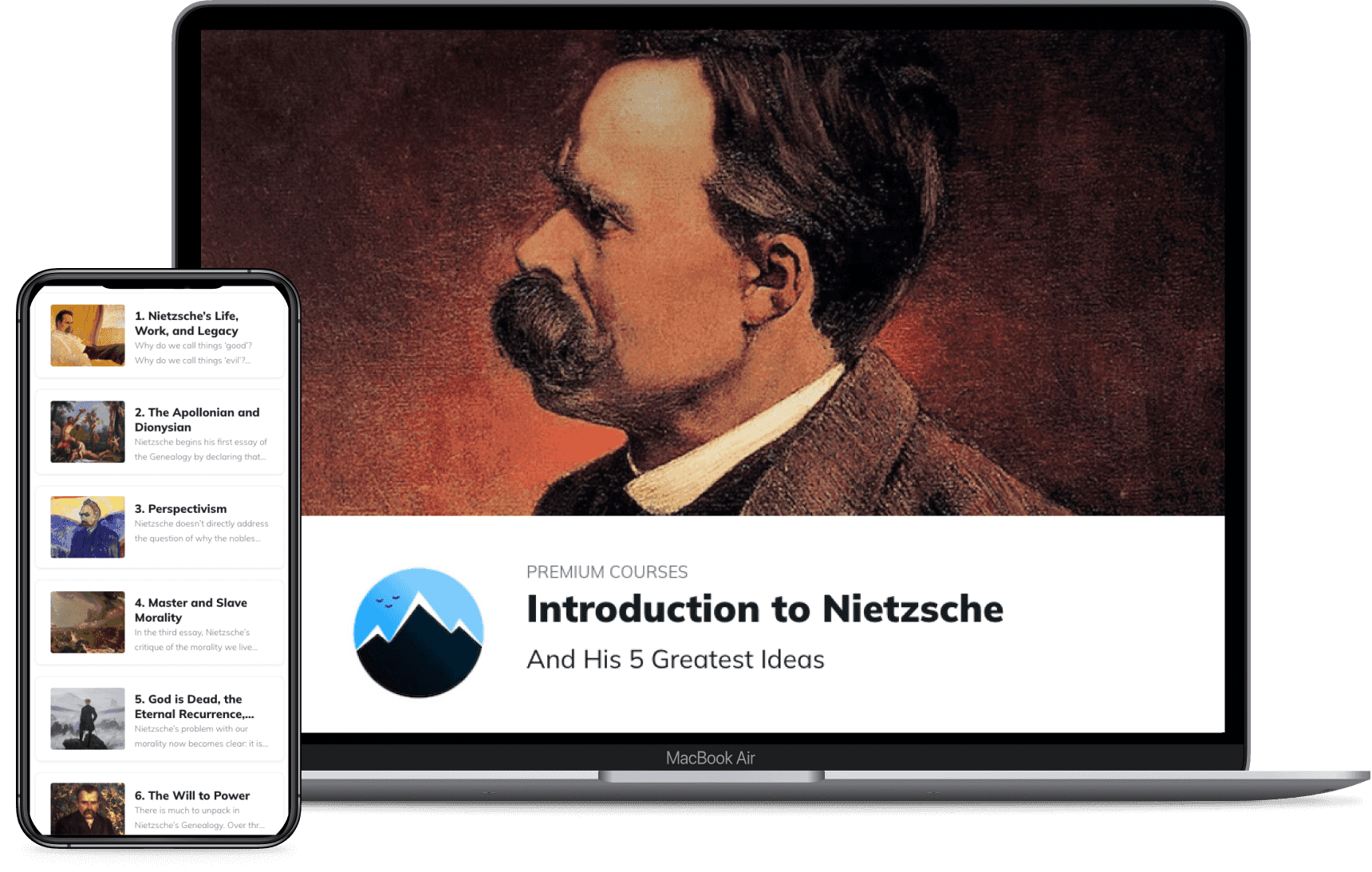
Your Myth-Busting Guide to Nietzsche & His 5 Greatest Ideas
BY PHILOSOPHY BREAK
★★★★★ (50+ reviews)
Get Instant AccessIf you’re looking for a modern, accessible, engaging introduction to Nietzsche’s philosophy with none of the nuance sacrificed, then the 2024 Introduction to Nietzsche and His 5 Greatest Ideas is designed to help you learn everything you need to know about the brilliant philosopher in 42 self-paced, myth-busting lessons.
This concise online guide is instantly accessible from any device, distills Nietzsche’s best and most misunderstood ideas (from God is dead to the Übermensch), and allows you to discuss Nietzsche and philosophy with other members (join 400+ active members inside).
Of course, we’re a little biased, as we produced this one — but if you’re seeking to understand the fundamentals of Nietzsche’s best ideas, have clarity on exactly what he was trying to say across his many works, and discover why he is so influential, then Introduction to Nietzsche and His 5 Greatest Ideas gets rave reviews (one reader describes it as “the best introduction to Nietzsche I’ve come across”), and might be just what you’re looking for!
5. Twilight of the Idols, by Friedrich Nietzsche
Turning from secondary literature to Nietzsche’s primary works, the question, of course, is where to start.
Well, as we discussed above, though one of his later works, Nietzsche’s 1889 Twilight of the Idols offers one of the best gateways into Nietzsche’s philosophy as a whole.
By no means ‘easy’ (secondary literature, including the previous entries on this list, is highly recommended for first-time Nietzsche readers), Twilight of the Idols nevertheless provides a better starting point than many of Nietzsche’s other works, for he was attempting to write a concise summary of some of the main ideas of his mature philosophy.
Not only that, but Twilight of the Idols contains some fantastic and hilarious passages, it’s a good introduction to Nietzsche’s aphoristic style, and it’s rather short (i.e. less than 100 pages, compared to the 500+ pages of some of Nietzsche’s earlier works).
This particular edition also features an updated, 21st-century translation by Judith Norman, and bundles in some introductory scholarly essays, as well as Nietzsche’s Anti-Christ — another great late work, in which Nietzsche offers his most scathing attack on Christianity — and Ecce Homo, his mania-afflicted autobiography which isn’t a good starting point, but a fascinating read nonetheless.
If you’re looking for your ‘first’ Nietzsche book, this bundled edition of Twilight of the Idols is a better, more accessible option than most, and will give you a feel for the great philosopher’s general ideas and approach.
6. The Gay Science, by Friedrich Nietzsche
Nietzsche’s early-middle works — Human, All Too Human, Daybreak, and The Gay Science — are hugely significant for the development of his thinking, and the brilliantly rich aphorisms that make them up contain much of the intellectual raw material that form his later ideas.
Though they are rather long (Human, All Too Human is over 500 pages), all are worth reading at some point; but if you’re seeking an accessible representative from this important era, The Gay Science is a good choice.
The Gay Science is where Nietzsche first mentions his ideas of the death of God, the eternal recurrence, and the higher man — and seeing them in this early form sets one up nicely to better understand Nietzsche’s later works, like Beyond Good & Evil, On the Genealogy of Morals, and Thus Spoke Zarathustra.
7. Beyond Good & Evil, by Friedrich Nietzsche
Nietzsche’s 1886 book Beyond Good & Evil is a rich, wide-ranging work in which he explores all the themes for which he is best known: the origins and nature of morality, the will to power, the failures and dangers of objective thinking, the vapidity of modernity, the shortcomings of ‘reason’, the short-sightedness and wrongheadedness of previous philosophers (including Socrates, Kant, Schopenhauer, and many others), as well as how we can overcome mediocrity and suffering and become who we truly are.
Along with his next book, On the Genealogy of Morals, contemporary scholars increasingly recognize Beyond Good & Evil as perhaps Nietzsche’s most important and enduring contribution to philosophy.
Though challenging in places, Beyond Good & Evil is nevertheless incredibly rewarding once you’ve got a few of the Nietzsche fundamentals under your belt — and you can dip around various aphorisms and sections to ease your reading experience.
8. On the Genealogy of Morals, by Friedrich Nietzsche
Foregoing his usual aphoristic style, in his 1887 On the Genealogy of Morals Nietzsche adopts a tripartite essay form, perhaps making for a more conventional and connected reading experience than that of some of his other works.
That said, it remains a dense, difficult, often bamboozling challenge: On the Genealogy of Morals is Nietzsche’s most sustained critique of conventional morality and religion, where he introduces and discusses a diverse collection of novel ideas, including the slave revolt in morality, ‘master’ morality, and the ascetic ideal.
Among the most studied of Nietzsche’s works today, On the Genealogy of Morals stands alongside Beyond Good & Evil, of which it was planned as an accompaniment, as his philosophical masterpiece.
Indeed, if Beyond Good & Evil is the culmination of Nietzsche’s philosophy in his trademark aphoristic style, then On the Genealogy of Morals is the culmination of his philosophy in essay form.
If you’re interested in Nietzsche, On the Genealogy of Morals belongs on your bookshelf (though some secondary literature would be very handy in helping you fully digest and appreciate it).
9. Thus Spoke Zarathustra, by Friedrich Nietzsche
If Beyond Good & Evil and On the Genealogy of Morals are the culmination of Nietzsche’s philosophy as prose, then Thus Spoke Zarathustra is the culmination of Nietzsche�’s philosophy as poetry.
Written between 1883 and 1885, Thus Spoke Zarathustra is a densely lyrical, epic prose-poem that Nietzsche regarded as his most important philosophical contribution (while some scholars agree with this judgment, many see it more as a literary achievement, with his philosophy better expressed elsewhere).
Aping the New Testament in style, it follows the journey of a prophet named Zarathustra who comes down from the mountains to share his “philosophy of the future” (the parallels with Nietzsche’s own life are not, one might suspect, accidental).
Thus Spoke Zarathustra is a challenging read and widely open to interpretation, with the key theme being that we must overcome all past value systems and cultivate self-affirmation — a theme embodied by Nietzsche’s character of the Übermensch, as well as his idea of the eternal recurrence.
While definitely not the best place to start, Thus Spoke Zarathustra is one of Nietzsche’s most famous works for good reason: its audacity, uniqueness, and style make it Nietzsche’s supreme literary achievement.
Further reading
Are there any other books you think should be on this list? Let us know via email or drop us a message on Twitter or Instagram.
In the meantime, why not explore more of our reading lists on the best philosophy books:

View All Reading Lists
Essential Philosophy Books by Subject
About the Author

Get one mind-opening philosophical idea distilled to your inbox every Sunday (free)

From the Buddha to Nietzsche: join 14,000+ subscribers enjoying a nugget of profundity from the great philosophers every Sunday:
★★★★★ (50+ reviews for Philosophy Break). Unsubscribe any time.

Latest Breaks
Each philosophy break takes only a few minutes to read, and is crafted to expand your mind and spark your curiosity.
